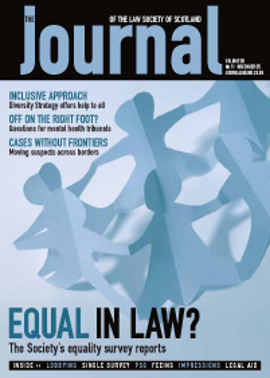Practice guideline: form of accounts and taxation
1. Accounts – preparation and presentation
(a) The form in which a solicitor presents an account is a matter for the solicitor’s personal preference but if the person liable to pay requires details, the solicitor must give a narrative or summary sufficient to indicate the nature and the extent of the work done. If a breakdown is requested the solicitor should give such information as can readily be derived from the records, such as the total recorded time spent, the number and length of meetings, the number of letters and of telephone calls. No charge may be made for preparing the note of fee or for the provision of such information. However if having been given such information the party paying insists on a fully itemised account, the cost of preparing that may be charged to them.
(b) If the paying party is still dissatisfied the solicitor must inform them of the availability of taxation by an auditor and the procedure. If the payer requests a taxation without a fully itemised account, the solicitor may have such an account prepared at his own expense. That full account may be submitted for taxation even if it is for a greater amount than the original note of fee.
(c) A solicitor may submit the file to an auditor of court or a law accountant for assessment of the fee, but it is stressed that a unilateral reference of this kind does not constitute a taxation. Such an assessment of a fee must never be represented as a taxation or as having any official status. The fee for such a reference is not chargeable to the party paying unless that has been included in the terms of business intimated to the client at the outset. If the note of fee is disputed, the solicitor must advise of the right to taxation as above, although the fee note should be taxed by a different auditor from the one who prepared it.
2. Taxation
(a) Remit
The essence of taxation is that it proceeds upon either a remit by the court or a joint reference by both the solicitor and the party paying, including non-contentious cases in (c) below.
(b) Disputed accounts
When the party paying, whether client or third party, requires that the solicitor’s account be taxed, the solicitor cannot refuse to concur in the reference unless the solicitor and client have entered into a written fee charging agreement in which the actual fee has been agreed, as opposed to the basis on which the fee is to be charged. The solicitor must forthwith submit the file and all relevant information including a note of fee or detailed account to the auditor. It is for the auditor to determine the procedure to be followed. In normal cases this will be a diet of taxation which should be intimated to the client by the solicitor. Evidence of such intimation, which may be by ordinary first class post, may be required if the client does not appear at the diet. If either of the parties wishes to make written submissions, the auditor will ensure that each party is fully aware of the other’s representations.
(c) Non-contentious cases
Taxation is necessary by law and in practice in certain circumstances. The accounts of a solicitor acting for:
- an administrator of a company under the Insolvency Acts;
- a liquidator appointed by the court;
- a creditors’ voluntary liquidator;
- a trustee in bankruptcy;
- a judicial factor;
- curators of all kinds must be taxed.
A solicitor who acts:
- as an administrator of a client’s funds under a power of attorney where the granter is incapable;
- in a representative capacity, e.g. a sole executor should have a fee note prepared or taxed by an auditor of court. A certificate by an auditor is appropriate in these cases.
A solicitor who is a co-executor with an unqualified person must not make a unilateral reference to the auditor for taxation. Such a reference needs the concurrence of the other executor. The auditor may require intimation of the taxation to any other party with an interest in the residue of the estate.
(d) Style of remit
A formal remit may be in the following form:
(place) (date). I, AB as Executor of the late CD and we, Messrs E & F, Solicitors to the Executor, hereby request the Auditor of the (Sheriff Court of .... /Court of Session) to tax the remuneration due and payable to the Solicitors for their whole work and responsibility in connection with (matter).
Signed: AB, E & F
This, however, is not essential; all the auditor requires is to be satisfied that the client is concurring in the request for taxation and accepting that it will be binding. It is often in practice a matter of agreement reached at an early meeting between solicitor and client. Any reasonable record of such an agreement having been reached will be sufficient for the auditor.
In this issue
- Changing perceptions
- A need undiminished
- Steps forward
- A better way to work
- Combatting the cross-border criminal
- Seen to be fair?
- The lobbying game
- A favoured model?
- A grand day out
- A window of opportunity
- Don't fall at the final hurdle
- Practice guideline: form of accounts and taxation
- Advice for All: the Society's response
- Matter for debate
- Divorcing the divorced
- Uncommon commencement dates
- Scottish Solicitors' Discipline Tribunal
- Website review
- Book reviews
- Still thumbs down
- Search and copy fees changing
- Common currency






